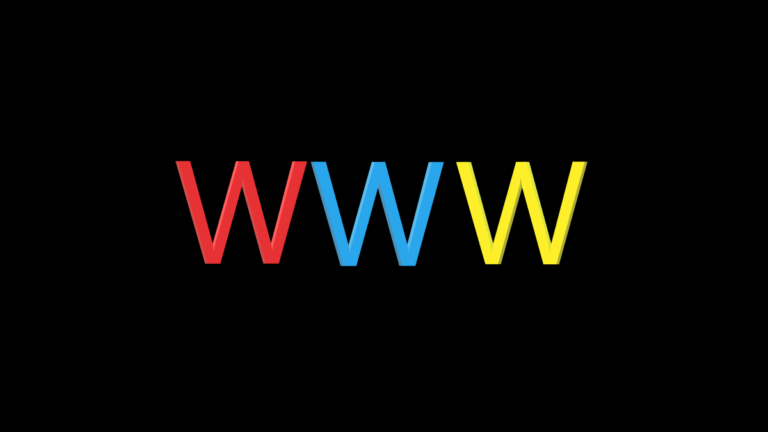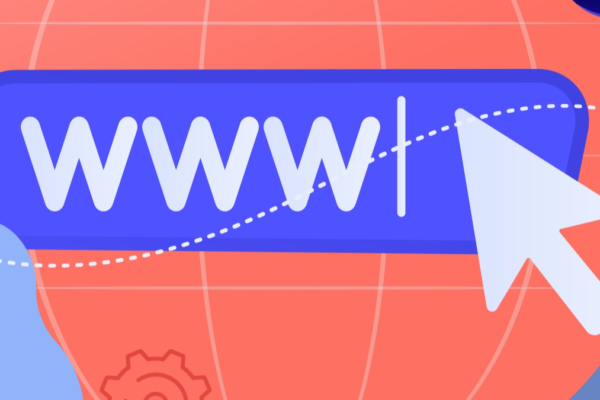The World Wide Web (WWW) is a collection of web pages and websites that are stored over web servers all around the globe and is connected to local computers and devices seamlessly through the Internet. These web pages and websites contain a variety of information that is usually in multimedia format and can include texts, images, audio, videos etc. It was invented by Tim Berner-lee in 1989 and is interesting to note that hardware architecture of underlying hardware, that is, Internet has been tried and in some form has been in existence as early as the 1960s.

About WWW
In general, many people confuse World wide web with the Internet. But it is not so, both these things are different. Internet is nothing but a way of connecting various computers and those can be present anywhere in the world, but the content that you can see on those interconnected devices is possible through the World wide web, as it is a collection of information that is accessed with the help of Internet. Internet is means of accessing the information present over the world wide web. Internet is an infrastructure and alone doesn’t mean as such but with the World wide web as a service on top of that infrastructure it acts as a holistic medium of information, both are complementary in that sense. For an analogy, consider the Internet as a big shoe rack and World wide web is a huge collection of shoes on that shoe rack. One more important difference is that the Internet is more of a hardware system and World wide web is more on the software side.
History of World Wide Web
Before getting to the usual years and dates, let’s start with something else. Do you know what was the first website and the first web page address?
The first website was info.cern.ch and the first web page address was http://info.cern.ch/hypertext/WWW/TheProject.html.
The story began in 1989 while Tim Berners-Lee was working at the CERN and it was in original format conceived and thought and developed to meet the requirements for automated information-sharing among scientists across the world.
In the year 1990, the first website and web server were running at the CERN, the address for which we just saw at the beginning of this section. All these were initially running on NeT computers. In 1991, Berners-Lee released his WWW software.
In December 1991, the first web server made its appearance in the United States at the particle physics laboratory.
In January 1993, the first release of the Mosaic browser took place.
In April 1993, CERN puts worldwide web in the public domain for the first time
In May 1994, the first international world wide web conference was held at CERN
One important consideration for Lee was that the world wide web should remain an open-source platform and in 1994 he founded the famous International world wide web consortium (W3C).
By the end of 1994, almost more than 10,000 web servers came into reality all over the world.
And since then, there has been no looking back.
Success
As we saw before in the above section, the world wide web didn’t come into reality overnight and it took years of handwork and perseverance of so many people to make it into a reality. With special thanks and gratitude to Tim Berners Lee, the world wide web is present in this form and is open source. There are various advantages of the world wide web and as with any other technology of system some downsides too, we will try to take a look upon both the aspects one by one.
Advantages
The worldwide web provided the much-needed top of the service architecture that the Internet required to make it possible so in essence, it is one of the most important advantages of the worldwide web.
Availability of free and accessible information is one of the most important advantages of the world wide web
Connectivity has been enhancing multifold with the coming up of world wide web and has led to the democratisation of knowledge in the true sense, as any information that anyone wishes to share from any part of the world is easily accessible to anyone, all thanks to the world wide web.
The ease with which the updated information reaches each nook and corner of the world would not have been possible without the world wide web. We tend to take this thing for granted in our present generation, but there existed a time when the updated information was a resource and only those who have had a monopoly over it used to access it.
It has strengthened the freedom of expression of people all over the globe as people are now aware of what is happening all around and can compare their rights if they can access the same one or not, so it has led to the betterment of lives.
Economically, all these e-commerce and online education has been made possible only because of the world wide web and now even the most marginalised sections of society has the access to basic resources or are in a position to access those.
Disadvantages
One major lacuna of the world wide web is that by its very design it integrates billions of web pages and websites and to search for the thing you are looking for, an efficient search engine is required. Though search engines have evolved a period and they are quite robust and formidable as we said the complexity of building an effective search engine is enormous and therefore there is growing fear of monopolisation or a growing sense of cohort ness among the search engine providers about the ground rules of the architecture.
Lack of regulation is also one of the downsides of the world wide web although W3C exists it doesn’t wield any penalties mechanism to enforce the rules or develop the framework that respects the rights of the users at large.
Lack of control over data is a worrying trend that is emerging across the world with several instances of data theft and improper use that influences public debates and even elections. This again emerges out of a lack of a centralized authority.
Current Status
The protection of the integrity of data and overall governing structures is been the most contested thought at present and several countries are evolving their respective data protection legislation with European Union taking the lead in the formulation of General Data Protection Regulations (GDPR). There has been growing pressure upon the tech companies too in the same regard to showing more transparency and accountability in their operations. The Osaka Declaration speaks about the free flow of data across the countries but various developing countries have raised their objections upon this and have asked for data localisation norms. So, we expect that the tussle of the governance structures regarding the norms and regulations of the world wide web will only sharpen but instead of looking at it in a negative sense, we must welcome the fact that it is now publicly contested with a hope that norms ermine in a democratic way.
Conclusion
Today, the world wide web is impacting every sector of the world and every single aspect of human life and though there have been some of the questions raised upon the transparency of the worldwide web as we have discussed in the above sections, overall it has a very liberating influence on populations all over the Globe and we anticipate that as Internet penetrates least developed countries, the phenomenon of the worldwide web will only be on the rise.




